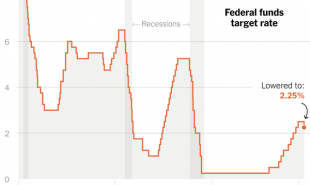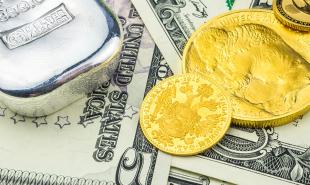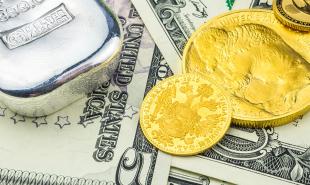
My heart goes out to the innocent victims of the bombings and attacks in France. Unfortunately, events like this have occurred throughout human history, and, sadly, will likely continue to happen. People engage in horrific acts for reasons they rationalize as appropriate, no matter how misguided their perspective. This is what ultimately drives certain factions, and causes great upheaval in our world throughout time immemorial. But, let’s not forget that every generation has had to deal with these types of events and ours is not unique in that regard.
Now, many will view this recent horrific event in Paris, and claim that it will have a significant impact upon our financial markets. Many will even note that such an event will cause market sentiment to change towards the negative. While this seems “logical” on its face, does history support the reality of this perspective? Do horrific or negative world events “cause” sentiment to turn negative? History proves this answer to be “no.”
I want to pose a question to you for you to ponder before we begin: Does the negative action of a minority of actors cause the mood of all of society to become negative or does the overall negative social mood of society cause negative actions of some actors within society? While you ponder this question, allow me to present some historical facts which should shed light upon the answer.
As our first example, let’s go back to the 1930’s. The Great Depression, which was triggered by the stock market crash of 1929, was ravaging the world. It was clearly one of the most negative points of sentiment the world experienced over the last 100 years. World stock markets were in crash mode, which clearly evidenced the pervasively negative worldwide sentiment.
Now, based upon our history books, it is commonly accepted that World War II began in September of 1939 when Germany invaded Poland, which led Great Britain and France declaring war on Germany in retaliation. So, we must now ask ourselves if the worldwide negative sentiment, which had been building for a decade, was the true cause of one of the worst negative actions seen in modern times – the commencement of World War II? And, when you ponder this question, I implore you to be honest with yourself.
Now, to further support this proposition, one has to recognize that the height of optimism coincided with the 1929 height of the stock market, which was, in fact, dubbed the “Roaring Twenties.” From that point in time, until 1942, worldwide stock markets were in the heart of one of the worst bear markets of modern times. But, in 1942, as World War II was moving into high gear, the stock market – and potentially even worldwide pessimism – found a long term bottom and began a 70+ year rally.
So, would it be reasonable to say that war was good for optimism and the stock market?
Or, would it make more sense to first say that the extreme of worldwide negative sentiment caused the negative actions which resulted in a world war? And, once that extreme pessimism ran its full course, it then had no place to go but turn up?
In other words, when the world negative sentiment finally reached its ultimate extreme (and the rubber band was stretched as far as it would go), it caused the extreme reaction we now know as World War II. But, when we finally hit the extreme, and the rubber band had to snap back, it then ended a major bear market in stocks, with World War II ending not long thereafter, as sentiment began to shift in the opposite direction, and the commencement of a 70 year bull market coincided with the upturn in sentiment from its extreme negativity.
Which seems to be a more plausible causation chain? I will tell you that the horrors perpetrated by Hitler upon the world are not viewed by me as the “catalyst” for optimism, but rather the culmination of extreme pessimism.
The one main take away that is truly incontrovertible is that the multi-year negative sentiment, evidenced by the stock market action and leading to the Great Depression, was well into extreme territory when the negative actions which caused World War II took hold. It is quite clear that World War II did not “cause” the world sentiment to turn negative, as it had been negative for years before the outbreak of World War II. Rather, it is quite clear, at least to me, that the pervasive negative sentiment of the prior decade potentially caused the outbreak of World War II.
Now, I can envision many of you shaking your heads in disbelief. But, I would hope you can open your mind to how the human mind works, especially en masse, and recognize the sense of this proposition.
Let’s now move forward to a more “modern” event. Many consider the events of 9/11 in 2001 as an example where a surprise news event “caused” a stock market meltdown. Most view this major event as also causing worldwide sentiment to turn negative. This is the common perception of all those to whom I speak about the impression they maintain of this event in relation to the stock market. The problem is that this perspective is simply not supported by the facts.
If one looks at a long term picture of the stock market, you would notice that the market actually topped a year and a half before this event occurred, and had already well begun the most significant bear market seen within the previous 30 years to that point. So, did the events of 9/11 cause a negative long term change in sentiment trend and market trend, or did the negative sentiment in effect for well over a year potentially cause negative actions? Again, which seems more plausible?
Moreover, I want you to consider a fact which goes completely unrecognized by all market participants who view the horrific events of 9/11 as having a major impact upon the direction of the stock market. Did you realize that the stock market actually bottomed within two weeks after the 9/11 event, and began a multi-week corrective rally which took the market higher than it was the day of the 9/11 event?
I will also challenge you to go look at a monthly or weekly chart of the decline between March 2000 and October of 2002, and, without looking at the dates, see if you can even pick out the 9/11 effect upon the market? If this event had such an important impact on the direction of the market, as most seem to believe, then it should be quite easy to pick out the market effect of this event. But, if approach this challenge honestly, you would likely be unable to do so.
In August 1998, the Atlanta Journal-Constitution published an article by Tom Walker, who conducted his own study of 42 years’ worth of “surprise” news events and the stock market’s corresponding reactions. His conclusion, which will be surprising to most, was that it was exceptionally difficult to identify a connection between market trading and dramatic surprise news. Based upon Walker's study and conclusions, even if you had the news beforehand, you would still not be able to determine the direction of the market only based upon such news.
Back in the 1940’s, Ralph Nelson Elliott recognized this perspective within our financial markets:
“The causes of these cyclical changes seem clearly to have their origin in the immutable natural law that governs all things, including the various moods of human behavior. Causes, therefore, tend to become relatively unimportant in the long term progress of the cycle. This fundamental law cannot be subverted or set aside by statutes or restrictions. Current news and political developments are of only incidental importance, soon forgotten; their presumed influence on market trends is not as weighty as is commonly believed.”
So, while the common perception of various surprise events may persuade most to view the markets from an event causality perspective, true students of financial markets know that common perceptions of the majority of the market often lead to wrong conclusions. While many of you are likely steadfast in your beliefs that events affect market sentiment, I am proposing that the exact opposite is actually true. In fact, the common perception of the causation chain is likely opposite of what the reality of history seems to prove. Again, just something to think about.
By Avi Gilburt ElliottWaveTrader.net







